Russia has launched a criminal investigation over a failed rocket launch to the International Space Station, according to reports.
A US and Russian astronaut were forced to make an emergency landing shortly after the mission got underway, with their Soyuz rocket having suffered significant engine failures.
It was an unprecedented mishap for the Russian space programme and the AFP news agency claims a criminal investigation is now underway to determine whether safety regulations had been violated during construction.
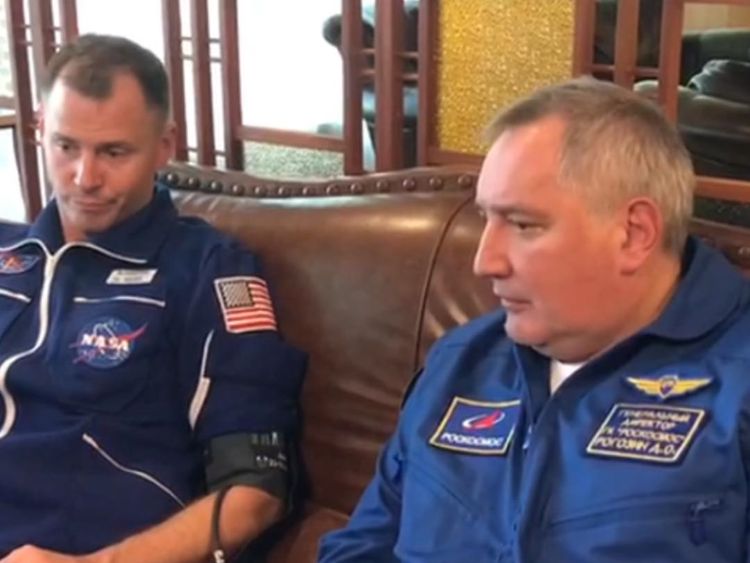
Despite the issue affecting the booster rocket, NASA's Nick Hague and Roscosmos' Alexey Ovchinin are alive and have touched down in Kazakhstan.
They landed about 12 miles east of the city of Dzhezkazgan, and officials from Russia's space agency said rescue workers had managed to reach the crew – who are now understood to be out of the capsule.
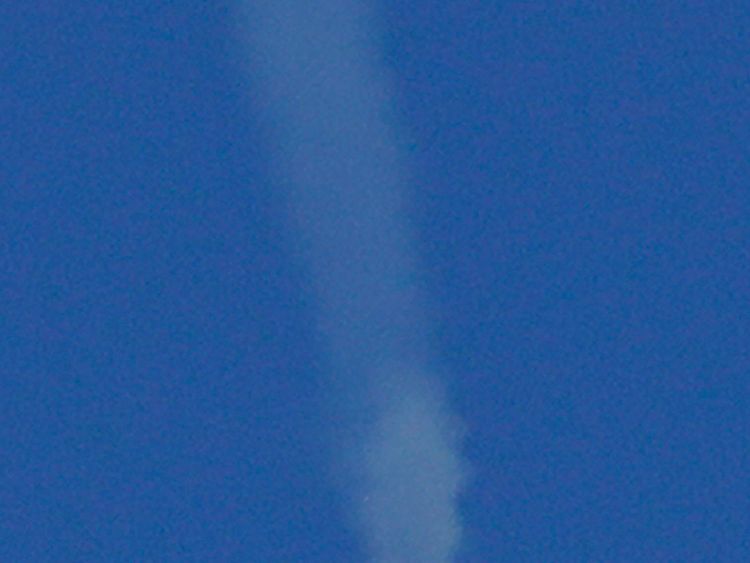
NASA's deputy chief astronaut, Reid Wiseman, said the crew "handled their procedures exactly as planned" and are "in great shape".
The craft was "about 50km in altitude when the abort occurred – just about on the boundaries of space".
He added: "Russian forces were on the ground when the capsule touched down.
"The extraction happened not long after that."
ISS Operations Integration Manager, Kenny Todd, described the incident as a "major anomaly" and said he had "every confidence our Russian colleagues will figure out what's going on".
He added that "technical issues don't know political boundaries".
A comparison of the booster separation in a normal Soyuz mission and today's by meteorologist Greg Dutra apparently shows increasing debris and a less-symmetrical jettison stage this morning.
All Russian manned space launches have been suspended after the incident, according to Russia's RIA news agency.
"Thank God, the crew is alive," said Vladimir Putin's spokesman, Dmitry Peskov, to reporters.
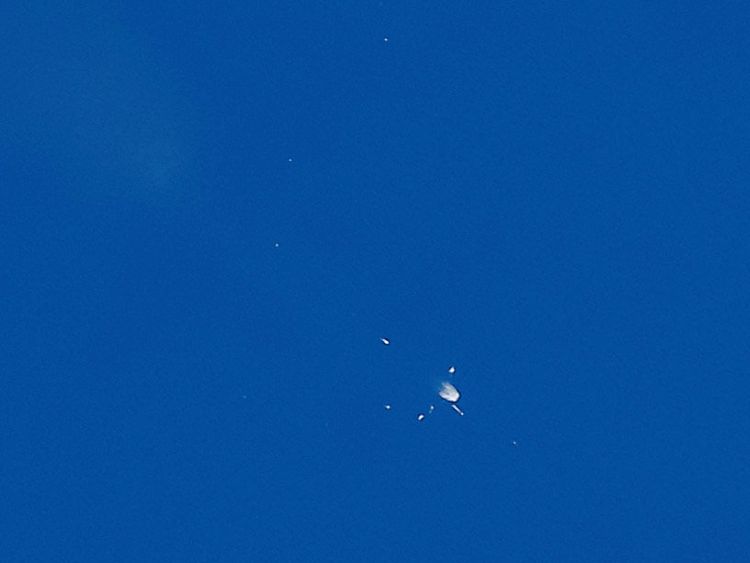
The ISS crew members currently in orbit have been "notified of the launch contingency", a NASA spokesperson added.
That crew is "essentially marooned", astronaut Chris Hadfield told Sky News.
He explained: "Right now, there are no vehicles on earth that can take people to the space station. None.
"Until the Soyuz gets fixed, or Space X or Boeing get their rockets working properly – they're still new, they haven't flown yet – what that means is the crew on board the International Space Station is essentially marooned.
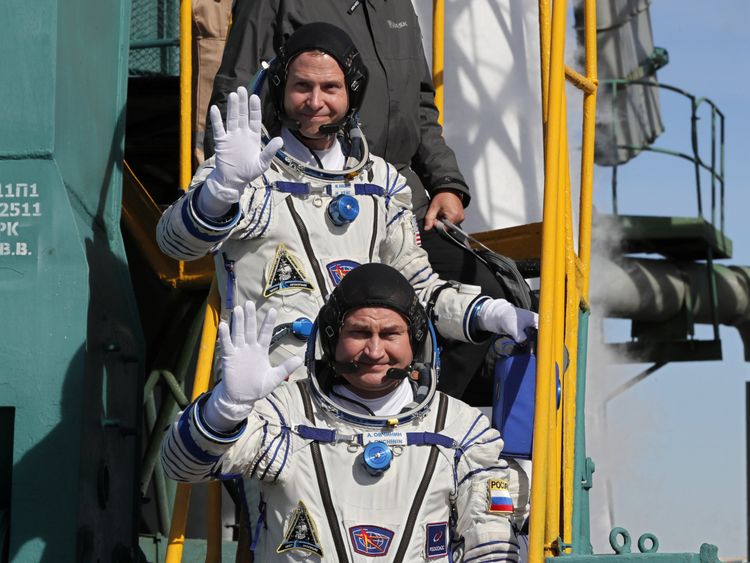
"They have their own ship – like a lifeboat to be able to come home – but no one can come up and relieve them right now.
"So I think they're in for a long stay."
Although the journey was expected to take six hours, it was only a few minutes after blast-off at the Baikonur cosmodrome in Kazakhstan that problems with the rocket became apparent.
The managing editor of NASA Spaceflight reports how an onboard view of the launch showed the crew being shaken around during the launch, and says "the staging was clearly off-nominal".
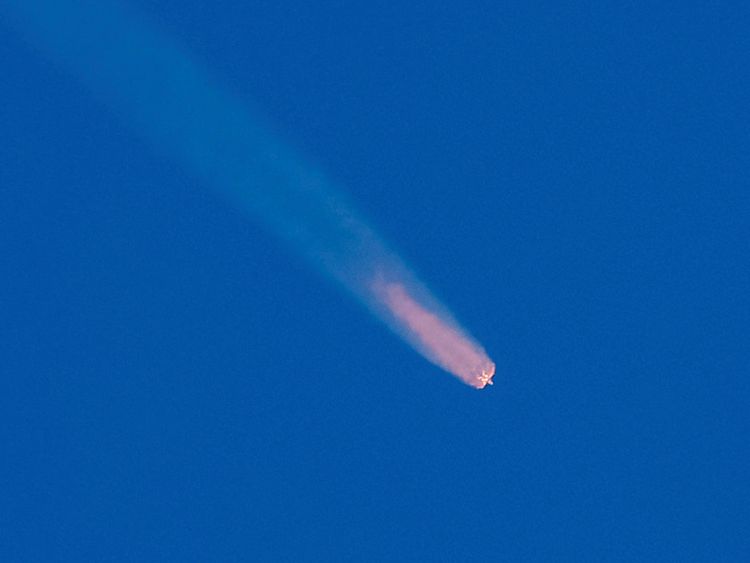
Footage broadcast on Russian television shows a series of billowing smoky explosions occurring as the booster rocket stage fails.
Spaceflight historian Gunter Krebs noted on Twitter that the situation reminded him of another Soyuz rocket failure in 1972, when "an in-flight booster failure occurred and the crew was rescued after ballistic re-entry".
Now we know the crew survived, let's look at the failure again. Onboard view showed the crew getting shaken around – which can happen – but the staging was clearly off-nominal. pic.twitter.com/zaso6u1yW8
— Chris B – NSF (@NASASpaceflight) October 11, 2018
Ballistic re-entry is a much steeper form of re-entry, involving only the forces of gravity and aerodynamic drag to slow down the speed of fall.
Malfunctions causing ballistic re-entry have occurred a number of times with Russia's series of Soyuz rockets.
More from Russia
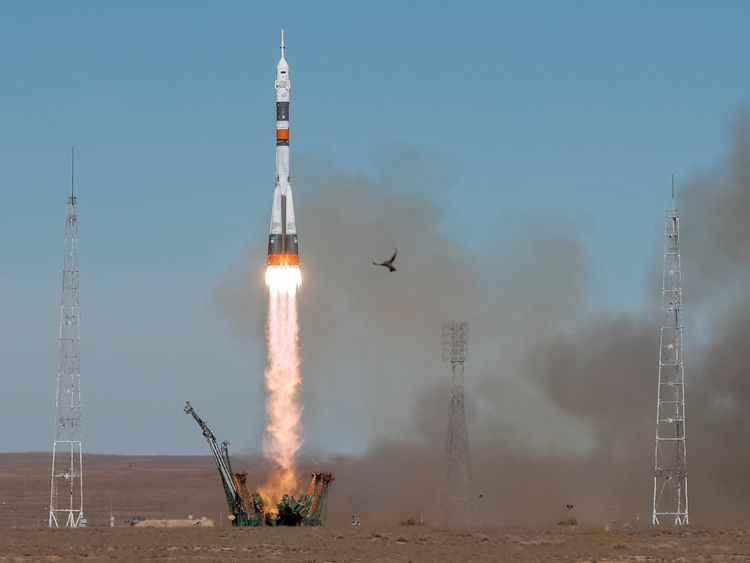
The NASA Spaceflight editor said: "You can be sure Soyuz launches will be grounded indefinitely.
"Commercial Crew has to conduct a successful uncrewed launch next year before flying astronauts to the ISS (and no – they will not 'fast track' anything that involves crew safety)."
[contf] [contfnew] 
Sky News
[contfnewc] [contfnewc]







